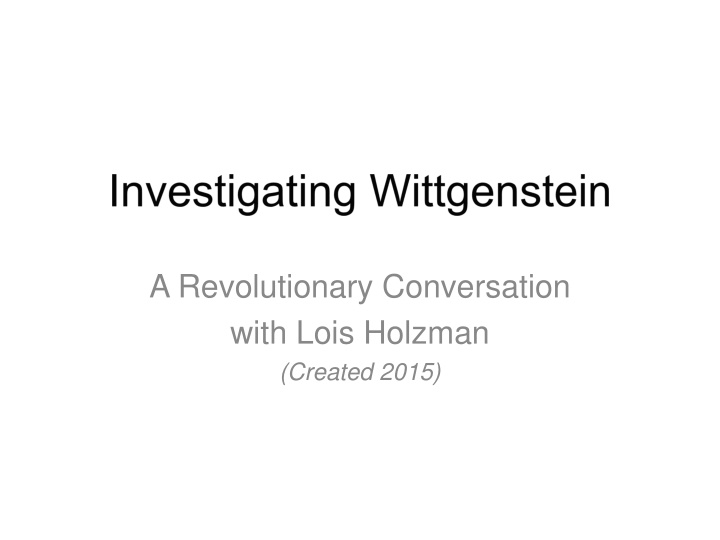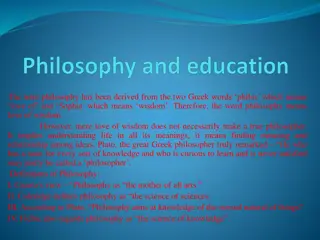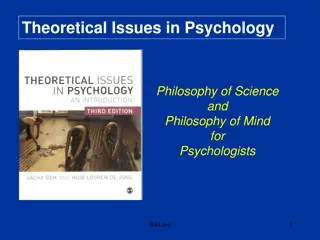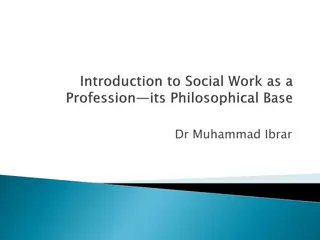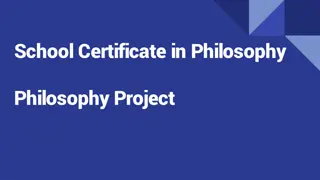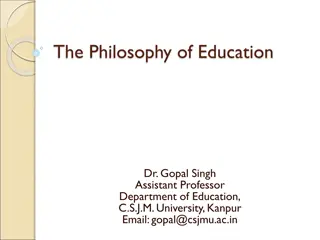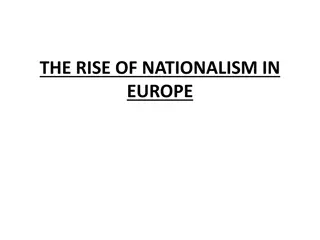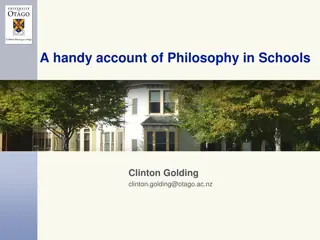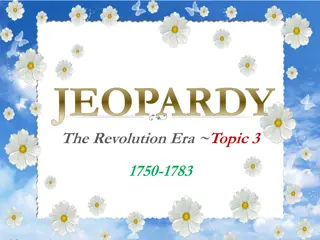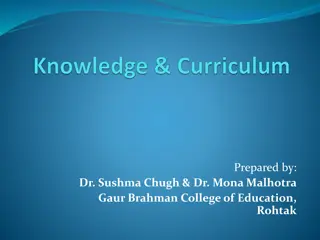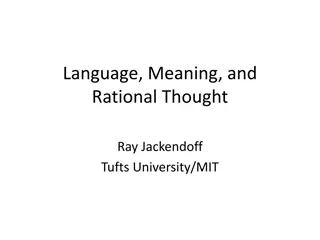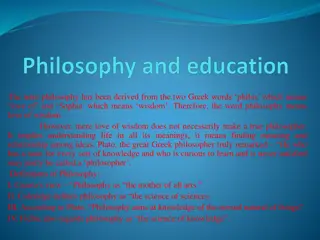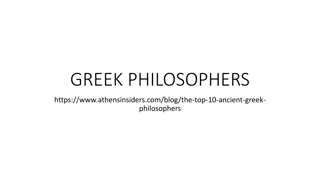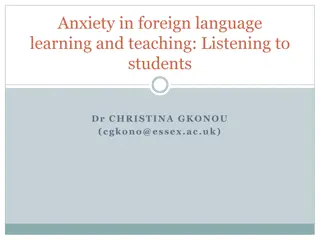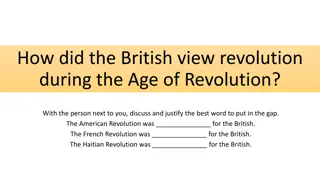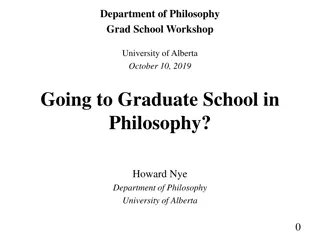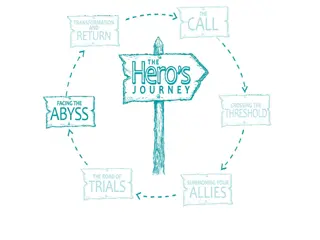Exploring Wittgenstein's Revolutionary Ideas on Language and Philosophy
Ludwig Wittgenstein, a brilliant 20th-century philosopher, challenged fundamental concepts in psychology, education, and medicine. His unique perspective on language, logic, and thought encourages us to question assumptions and play with language. Wittgenstein's quotes inspire us to rethink understanding, language games, and problem-solving, emphasizing the importance of exploring new perspectives.
Download Presentation

Please find below an Image/Link to download the presentation.
The content on the website is provided AS IS for your information and personal use only. It may not be sold, licensed, or shared on other websites without obtaining consent from the author.If you encounter any issues during the download, it is possible that the publisher has removed the file from their server.
You are allowed to download the files provided on this website for personal or commercial use, subject to the condition that they are used lawfully. All files are the property of their respective owners.
The content on the website is provided AS IS for your information and personal use only. It may not be sold, licensed, or shared on other websites without obtaining consent from the author.
E N D
Presentation Transcript
A Revolutionary Conversation with Lois Holzman (Created 2015)
Ludwig Wittgenstein (1889-1951) Wittgenstein was a unique, eccentric and brilliant 20th century philosopher who took apart nearly every concept that underlies how psychology, education and medicine are done and put just a few of them back together. His writings on language, logic, learning and looking hard but fun! are an integral part of the psychology of becoming. Wittgenstein s reflections are valuable tools for examining some of our most basic assumptions like causality, essence, meaning, and the very nature of language and thought. Psychologists and educators not to mention, the rest of us need to seriously examine, question and play with our assumptions and our language.
Here are some Wittgenstein quotes to examine, question and play with
The way to solve the problem you see in life is to live in a way that will make what is problematic disappear.
Philosophy is a battle against the bewitchment of our intelligence by means of our language.
The term language-game is meant to bring into prominence the fact that the speaking of language is part of an activity, of a form of life.
What I do is suggest, or even invent, other ways of looking. I suggest possibilities of which you had not previously thought. You thought that there was one possibility, or only two at most. But I made you think of others. Furthermore, I made you see that it was absurd to expect the concept to conform to those narrow possibilities. Thus your mental cramp is relieved, and you are free to look around the field of use of the expression and to describe the different kinds of uses of it.
Try not to think of understanding as a 'mental process' at all. For that is the expression which confuses you.
An organism might come into being even out of something quite amorphous, as it were causelessly; and there is no reason why this should not really hold for our thoughts, and hence for our talking and writing.
There is nothing more stupid than the chatter about cause and effect in history books; nothing is more wrong-handed, more half-baked. But what hope could anyone have of putting a stop to it just by saying that? (It would be like my trying to change the way women and men dress by talking.)
What should we gain by a definition, as it can only lead us to other undefined terms?
One is often bewitched by a word. For example, the word know.
Want More? Read all chapters of The Overweight Brain: How Our Obsession with Knowing Keeps Us from Getting Smart Enough to Make a Better World at http://loisholzman.org. Wittgenstein s masterpiece, Philosophical Investigations, is available FREE online at http://gormendizer.co.za/wp- content/uploads/2010/06/Ludwig.Wittgenstein.- .Philosophical.Investigations.pdf Watch the video of contemporary philosopher John Searle discussing Wittgenstein at https://www.youtube.com/watch?v=qrmPq8pzG9Q&feature=PlayList&p=BA11F 92930FBA44D&index=0&playnext=1
